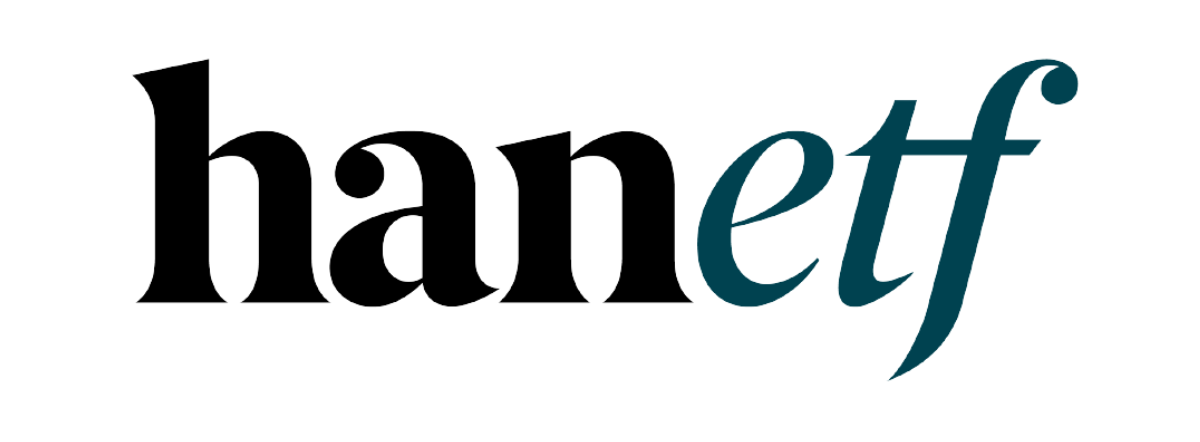The optimism abroad in the ETF market at present can be seen in what sector veterans Hector McNeil and Nik Bienkowski have said about their new white-label venture HANetf. With demand for ETFs set to increase, this storied pair believe their new offering provides the tools available to "gatecrash" the current market with a platform that offers prospective market entrants with the "spades and shovels" needed to provide a successful offering. ETF Stream caught up with McNeil to discuss his hopes for the new venture and what he sees as the major opportunities ahead both for the company and the market as a whole.
ETF Stream: Let's start with the obvious: what is the thinking behind HANetf?
Hector McNeil: HANetf will be Europe's first independent UCITS ETF white-label platform. The platform will be a full-service offering including legal, compliance, product development, ETF fund operations, marketing, capital markets and distribution. Myself and my business partner Nik Bienkowski have worked in ETFs since the early 2000s. We were both founders and part-owners of two very successful businesses, ETF Securities and Boost ETP/WisdomTree Europe. Our experience is almost unique for Europe being ETF entrepreneurs as most ETF business have been developed within existing large institutions such banks or asset managers. This unique insight, we believe, is something we can use to help new entrants to the European UCITS ETF industry successfully launch their business. Many entrants over the last 10 years, particularly US and Asian ETF business, have found it difficult to find the right model to successfully launch a business and then raise significant assets under management. Most have struggled or failed to do that. We also believe that most if not all European traditional asset managers who typically launch low-tech mutual funds are increasingly looking to enter the ETF market and add that product wrapper alongside their existing mutual funds. What all the above new entrants have in common is they want to have UCITS ETFs in their offering but don't necessarily want a full-service ETF business. HANetf provides all the spades and shovels needed to set up, issue, manage, market and distribute their ETFs. The new entrant simply needs investment strategies that they feel will be added value and interesting to investors. The main focus of HANetf will be added value investment strategies such as thematic, smart beta, active and semi-active strategies. The standard passive beta will probably not be our focus unless the new entrant controls significant assets they can convert into the ETF.
ETF Stream: Isn't there already competition in the third-party model with Source and ETF Securities?
HM: Interestingly Nik and myself were instrumental in setting up ETF Securities (Canvas) and also we were intimately involved in the original concept around Source. So in some ways these concepts and our other ETF business ventures have helped us develop our business case for HANetf. Both Source and Canvas are different to HANetf as both are add-ons to their existing business. This therefore means they aren't independent and arguably the joint-venture ETFs that both have on their platforms have to compete with in-house ETFs for resources and focus. As HANetf only has client ETFs on its platform there is no such conflict. Its also true to say that both platforms enter into joint ventures with third-party asset managers and the upside of the asset growth is shared whereas HANetf is a service provider and the majority of the upside stays with our clients. We also believe its very important that our clients are free to take the ETFs in-house if they feel that's what they want to do at a later date. They may do this if they feel the ETFs issued have grown to a critical mass and their experience is sufficient to do so. We do hope, however, we do such a good job they never want to leave but we leave them with that option. Finally, we also think that being a service provider rather than a joint-venture partner we will be a far more cost-effective solution for the client to enter the ETF market.
ETF Stream: Won't most half-decent existing asset managers tempted by your service just set up their own businesses?
HM: If it was simple as that you would have seen more do it. I think many consider it and there is definitely someone in each of the companies who has on their objectives (list) 'what's our ETF strategy' but most either pontificate due to the complexity, cost and perceived barriers to entry. HANetf crashes these barriers to entry and we essentially shift the paradigm. You can see this is the case in the US, which is probably five-to-10 years' ahead of the European ETF market. There is a whole industry around white-label ETFs and as a result the new entrants can be as small as an entrepreneur who has a great idea and finances a single ETF and sees what happens. In fact, last year saw new entrants into the US ETF market explode, most thematically-focused, high-fee and often lone or a small batch of products. In Europe to date most entrants are large 'supermarket of ETFs' players with 100s available under their umbrella. The difference in complexity in Europe v US is in the US you have one market, one language, one currency, one settlement system and a single tax system. In Europe you have multiple exchanges, settlement systems, currencies, languages, taxation systems and finally Brexit. Many find this very intimidating and confusing.
ETF Stream: What kind of ETFs do you think will prove most attractive over the next few years?
HM: What's clear is the ETF industry is highly innovative. It's also clear that contrary to common perceptions, ETFs are not a passive asset class. ETFs are purely a wrapper. It's a piece of technology and a valid comparison versus mutual funds is the same as digital TV technology versus analogue. It took a long time for analogue to be turned off but it happened. The same will be true of mutual funds and ETFs. I am also convinced that over time everything you see in mutual-fund land now you will see in ETFs except private equity and physical property due to the lack of daily liquidity. So alongside passive beta you will see thematic ETFs, smart beta/passive active, semi-active and fully active investment strategies. I actually believe the active space will end up being the biggest ETF segment by assets under management.
ETF Stream: Where are the 'holes' in the market? Where are existing providers are under serving?
HM: Clearly the passive low cost beta world is well-served and super cheap. However, we are in the next stages of development of ETF provision. For me the focus areas are as follows:
Multi factor ETFs - offerings which provide investors a combination of factors such as value, momentum, size, low volatility etc. Across all asset classes
Portfolio ETFs - offer broad portfolios such as balanced or conservative. These provide investors with low cost diversification and little need to buy anything else
Active ETFs - provision of strategies where its less rules based and more human intervention. I think this will be particularly interesting for less efficient markets like emerging markets and fixed income
ETF Stream: Many issuers think retail is the big hope? Do you agree? More pertinently do you think IFAs will embrace ETFs?
HM: I think retail is definitely the end goal. In the US one of the reasons ETFs are so successful is that retail direct or through advisers accounts for 50-60% of all assets and volumes. Europe is less than 10%. Regulatory changes like RDR and MIFID 2 will help to encourage the use of ETFs by retail and advisers due to the focus on price and transparency. Also advisers have moved clearly from managing money to being managers of managers this again plays into the hands of ETFs as their charging structure is a percentage of the portfolio rather than product providers paying them to use their products. More providers like Scalable Capital, MoneyFarm, IG Group and Nutmeg are coming with ETF portfolio and robo-adviser models that use ETFs as portfolio building blocks that allow investors to get ready made portfolio solutions. The retail segment should get significantly more important simply by the fact it's coming from such a low base. Only in Italy is there a comparable retail participation to the US so its shows it can and probably will happen.
ETF Stream: It strikes us at ETF Stream that fixed-income ETFs offer huge opportunity. Do you agree?
HM: The simple answer is yes. Fixed-income ETFs are still relatively nascent. Also fixed-income markets are relatively inefficient and also straight beta makes limited sense for the asset class as higher yields probably suggest higher risks. Smart beta and ultimately active Fixed income ETFs will become the norm. There are already products out there that have semi-active strategies around emerging market corporate bonds.
ETF Stream: Are ETFS a bubble?
HM: No, they are a democratic revolution. Low cost, transparent, highly liquid, innovative and one of the most democratic investment vehicles available to all investors on the same terms i.e. wholesale total cost of ownership being charged to the smallest investor to the largest. It could be that over time all mutual funds will be replaced by ETFs.



